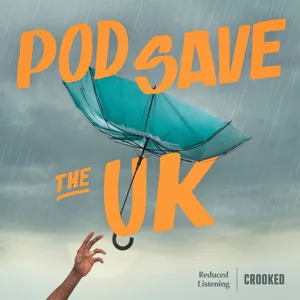Bombs, boat sinkings and assassinations: is the Middle East descending into war?

Explore " israel" with insightful episodes like "Bombs, boat sinkings and assassinations: is the Middle East descending into war?", "Gaza’s “Operating System” - with Nadav Eyal", "Haviv Rettig Gur on Palestinian radicalism - was 10/7 just another turn of the dial?", "A Shift in the War - with Haviv Rettig Gur" and "An insider’s account of the Harvard Antisemitism Committee — with Rabbi David Wolpe" from podcasts like ""Today in Focus", "Call Me Back - with Dan Senor", "Call Me Back - with Dan Senor", "Call Me Back - with Dan Senor" and "Call Me Back - with Dan Senor"" and more!












As Biden successfully secures a temporary ceasefire in Gaza, Congress attempts to pass an aid package for Israel, Ukraine and Taiwan. But Republicans say they won’t pass anything unless Democrats agree to new demands related to US-Mexico border security. Meanwhile, Nikki Haley and Ron DeSantis are spending super PAC money going after each other in Iowa and New Hampshire. While their biggest competition, Donald Trump, says he is once again set on repealing Obamacare. And finally, George Santos rips into his congressional colleagues ahead of his possible expulsion from the chamber.
For a closed-captioned version of this episode, click here. For a transcript of this episode, please email transcripts@crooked.com and include the name of the podcast.


This week the attention of British political journalists was firmly fixed on Chancellor Jeremy Hunt, who unveiled big tax cuts in his much-anticipated Autumn Statement on Wednesday. The Conservative government’s cuts to National Insurance will put a few more pounds into UK payslips starting January– but at what cost? The Guardian’s Kiran Stacey joins Nish and Coco to explain what these cuts mean for public services (spoiler alert: it’s not good), and to explain why these proposals look like the work of a Chancellor who doesn’t plan to be in office much longer.
While the Tories plot out a strategy for the next election– and its aftermath– the millions of people using food banks have other concerns. Helen Barnard, Director of Policy, Research & Impact at the Trussell Trust explains what the Autumn Statement means for people struggling with food insecurity and homelessness, and why tax cuts typically benefit the wealthiest members of society, not the poorest. She also lays out what kinds of structural changes could help end poverty.
Planned changes to the disability benefits program give Nish a villain for the week, while Coco celebrates the heroic campaigners of Stop MSG Sphere whose activism successfully halted plans to build a bulbous, pulsating light-polluting orb-shaped music venue in Stratford, East London.
Pod Save the UK is a Reduced Listening production for Crooked Media.
Contact us via email: PSUK@reducedlistening.co.uk
WhatsApp: 07514 644 572 (UK) or + 44 7514 644 572
Insta: https://instagram.com/podsavetheuk
Twitter: https://twitter.com/podsavetheuk
TikTok: https://www.tiktok.com/@podsavetheuk
Facebook: https://facebook.com/podsavetheuk
YouTube: https://www.youtube.com/podsavetheworld
Guest:
Helen Barnard, Director of Policy, Research & Impact at the Trussell Trust
Kiran Stacey, Political Correspondent, The Guardian
Audio credits:
UK Covid-19 Inquiry
Sky News
ITV News London
parliamentlive.tv
Useful links:
Helen Barnard’s book: www.waterstones.com/book/want/helen-barnard/9781788213974
Visit our sponsors: auraframes.com/psuk, promo code: PSUK
Visit crooked.com/store for Christmas present ideas



The President says a deal is close that would free hostages in Gaza, while more Democrats in Congress call for a ceasefire or conditions on military aid to Israel. Meanwhile, Biden celebrates his 81st birthday with more bad polling and anxious Democrats. Trump continues his run of bonkers campaign stops in Iowa and Fox News kicks off the holiday season with a meltdown over “woke” Christmas. Then, ProPublica and NPR reporter Andrea Bernstein joins the show to talk about the newly announced Supreme Court ethics code and her podcast about right-wing judicial activist Leonard Leo, “We Don’t Talk About Leonard”. Finally, we kick off a new Thanksgiving tradition and pardon our favorite political turkeys of 2023.
For a closed-captioned version of this episode, click here. For a transcript of this episode, please email transcripts@crooked.com and include the name of the podcast.



Stay up to date
For any inquiries, please email us at hello@podcastworld.io